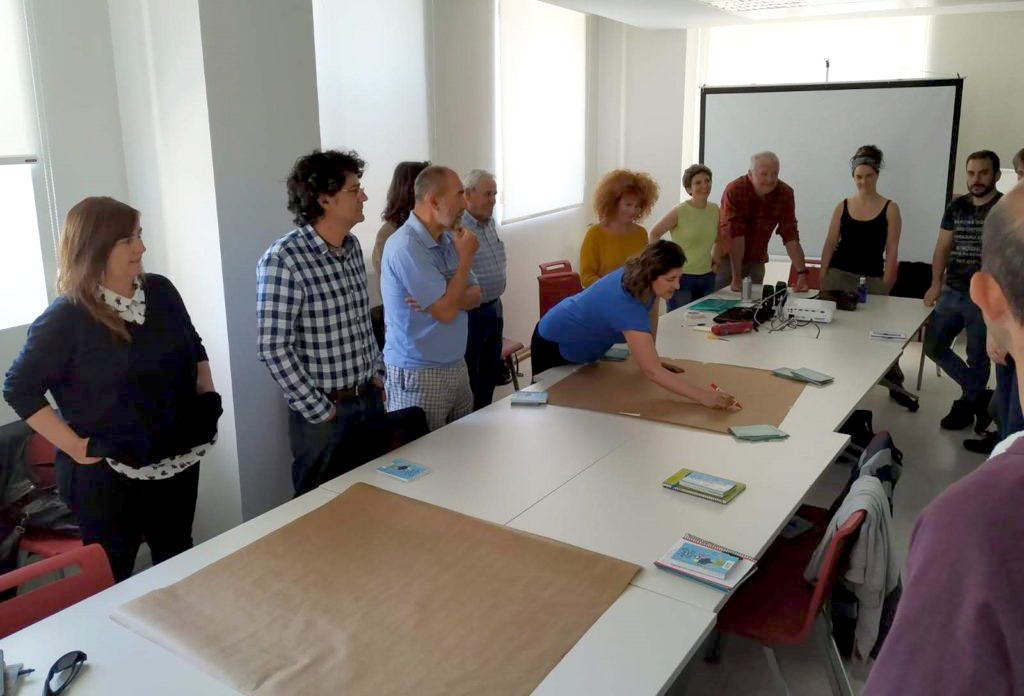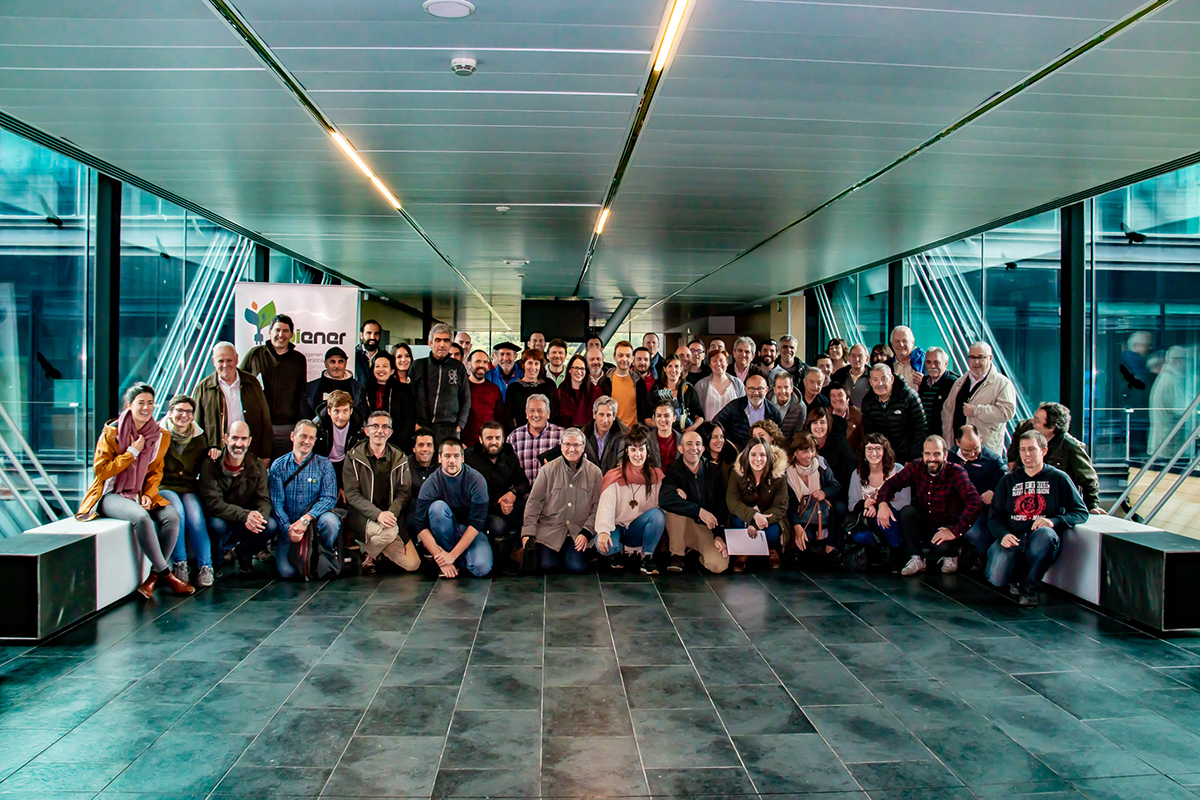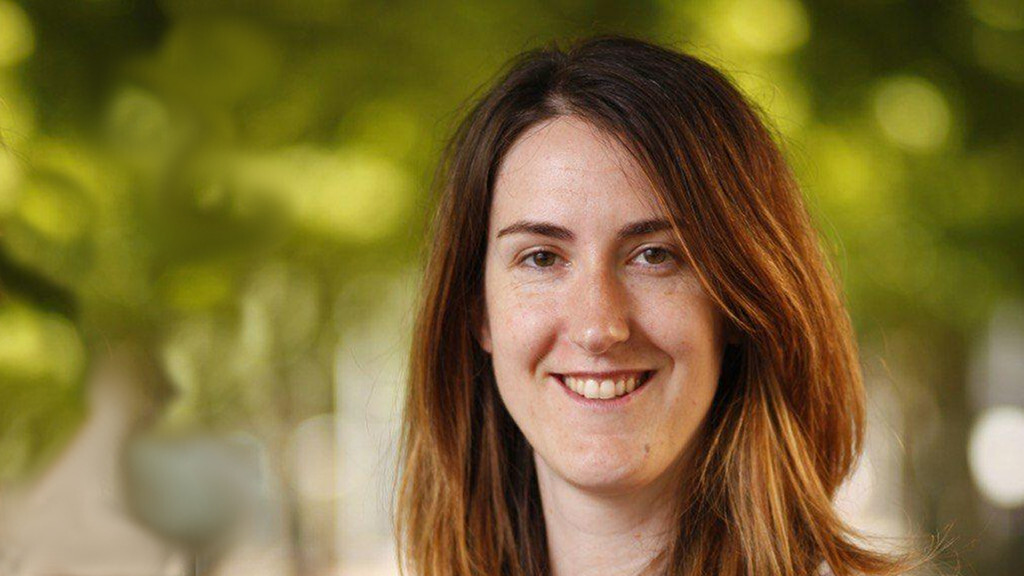Stories
March success story: Towards a gender-just energy future
Community energy is key to action on the climate crisis. It can empower people, boost local economies, and reinvigorate communities. Community-led initiatives play an important part in the transition towards a 100% renewable and just energy future. Success stories of community energy projects can be found all over Europe. At REScoop.eu we want to highlight these stories to further accelerate the movement towards a cleaner and democratic system.
This month we travel to the Basque Country, Spain, on International Women’s Day to hear about Goiener’s work to promote gender equality and raise awareness about a gender-just energy transition.
Taking action on gender equality issues
Goiener is an energy cooperative that produces and supplies energy to more than 20,000 citizens in the Southern Basque Country, in Spain. Founded in 2012, the cooperative has built a solid identity in the region around participation, trust, gender equality and bilingualism – they use Basque and Spanish in all their communications.
Since its foundation, Goiener has paid special attention to gender issues, but the topic was more thoroughly integrated into the cooperative’s structure a few years ago when several organisations and trade unions in Spain called for a women’s strike on the occasion of International Women’s Day. The call sparked a discussion among Goiener members about the meaning of the day and the strike. Erika Martínez, president of Goiener, shares some insights on the reflections.
“We had to decide what to do with the strike, and some of us wondered: why should we strike today if we don’t reflect on gender issues for the rest of the year? After some discussions, we agreed that we would strike and demonstrate on 8 March, but also work on other gender issues for the rest of the year.”
They started with small actions for gender equality, mostly based on individual initiatives within the organisation. For example, they joined women’s statements, started using gender-neutral language in their communications and tried to find a gender balance in their media and public events participation. Soon after, they decided to go further and develop a gender equality plan.

The gender equality plan of Goiener
Although energy cooperatives are more gender-equal than the rest of the energy sector, a gender gap still exists in terms of female participation, average ownership rate, visibility and representation in management positions. Moreover, energy communities often struggle to attract female members, especially vulnerable women. For example, an analysis of the demographics of 13 wind energy communities in Germany showed that their membership base was not very diverse. Members were predominantly men (80%) in an older age group and with a high level of education. Gender equality plans help address this gender gap structurally.
Creating a gender equality plan requires diagnosing the situation, setting up actions to address the issues found, and following up on the proposals and commitments made in the plan. At Goiener, they were especially interested in a proper diagnosis that would go beyond the figures they already had. An external organization carried out the analysis in 2019 and the result was quite positive. They were doing well in many areas, but still aspects to improve were identified, as well as documents or processes that they hadn’t developed yet.
The main areas for improvement were the development of a protocol against harassment – Goiener had not yet developed one –, the use of language in informal internal communication – Goiener did well in external and formal communications, but the use of language in some informal spaces could be improved –, and the gender balance among the volunteers – they are generally men.

After the diagnosis, Goiener developed a gender equality plan that focused on five areas: political commitment to gender equality, organisational culture, management of care and conflicts, participation and decision making, and human resources management. For each area, a number of objectives and actions were identified to achieve them. The plan was approved in the general assembly, creating a path to follow for the next four years.
On the path towards a gender-just energy community
Although the plan wasn’t followed as expected due to the impact of the covid-19 pandemic on the cooperative’s day-to-day operations, Erika is already identifying some changes in the cooperative. The statutes of the organization have been rewritten in inclusive language, a mandatory gender balance in the steering committee has been introduced, and several gender protocols have been developed. In communications, they started referring to cooperative members and workers only in feminine, which generated some controversy, Erika explains.
“Oddly enough, this is the action that faced wider backlash. Not everyone liked it and we received several answers to our communications complaining about it, but I think everybody accepted it after we explained it.”

Erika adds that the plan triggered a debate in the organisation about how far they should go to achieve gender balance among the staff. Should they prioritise the best technical candidate or give visibility to other aspects of the candidates’ CVs to help achieve gender balance in all teams? Currently, Goiener’s staff is well balanced, but the distribution is uneven across teams, there are teams with predominantly women and teams with predominantly men. Some teams have addressed the issue individually, but there hasn’t been a deep discussion at the cooperative level yet. They also need to continue working on the gender balance of the volunteers.
Meanwhile, Goiener continues with other gender actions and the message is getting through. For example, four women now hold the four presidencies of the Goiener group, compared to two women and two men previously. This is not included as a requirement in any plan, but Erika thinks that it is a consequence of the gender actions around the plan.
Achieving gender justice in energy cooperatives in Europe
Thinking about how to kick off a similar process in other energy cooperatives, Erika suggests proceeding little by little.
“The first step is to explain that a gender equality plan isn’t against anybody, but a collective diagnosis that showcases a reality with the aim of giving everybody the same opportunities. I would start by organizing workshops and sessions to discuss the topic and feel the temperature of the room. There is no point in having a gender plan if it is not followed and embraced. It will not bring about real change. A gender equality plan needs to be a collective decision, and if there is any rejection, it should be openly discussed and addressed.”
Erika also recommends putting in writing the objectives agreed upon and the actions to achieve them. “Don’t let it depend on the goodwill of whoever is in the cooperative at the time”, she points out.

At REScoop.eu, the European Federation of citizen energy cooperatives, we have an ambition statement from our Gender Power working group inviting all REScoop.eu members to contribute to a just energy transition by promoting the meaningful participation of people of all genders on equal terms. Those interested in gender justice can join the working group to identify needs and challenges, exchange best practices, and discuss tools to help energy communities diversify their boards and membership base.
Ahead of this year's International Women's Day, the Gender Power working group has recorded video statements to celebrate and empower all women to not only satisfy their energy needs but also fulfil their aspirations and ambitions for a just and fair energy transition. These videos can inspire other energy cooperatives to take the same path that Goiner is following.